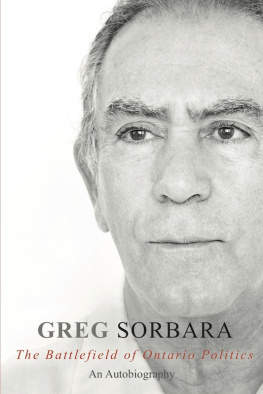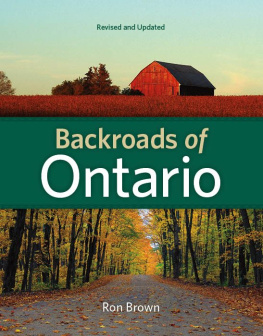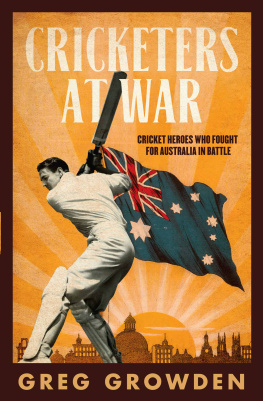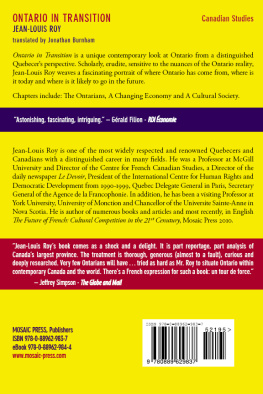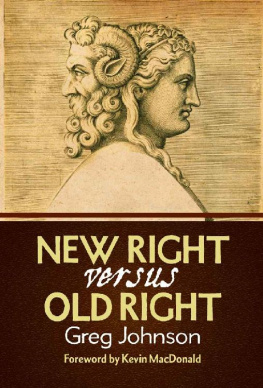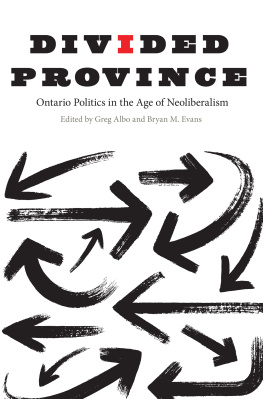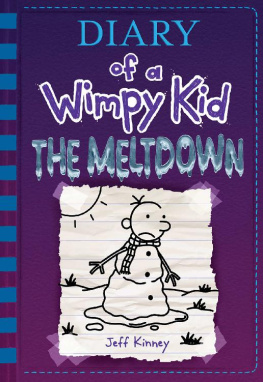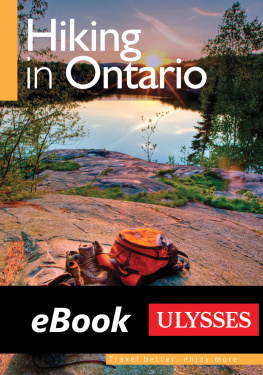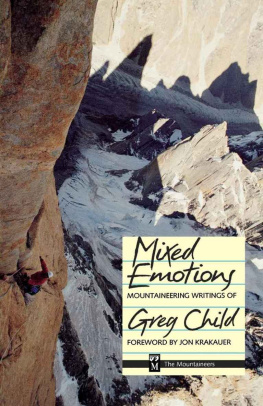1
From the Foot of Italy to the Steps of Queens Park
One of the things Ive always loved about my familys background is how quintessentially Canadian it is one of the millions of stories of immigration to welcoming Canadian soil.
Both of my parents were born in the southernmost area of Italys mainland the region of Calabria. My father, Sam, was born in a mountainous place called San Giorgio Morgeto in 1911. My mother, Grace (in Italian, Grazia ), was born in the seaside town of Bovalino Marina in 1913. Together, my parents carried within them the power of the mountains and the oceans, according to my wife, Kate, who knows about these things the two most powerful forces in nature.
Like many Italian immigrants, both of my grandfathers came alone to the new world to establish themselves before sending for the rest of the family. By the time my father came to Canada in 1925, his father had become an alcoholic and his mother was quite sick. She died within a few years of her arrival. My father, the oldest of four siblings, in effect became the presiding parent to his three siblings after my grandmothers death.
Its not an exaggeration to say that my fathers family lived in real poverty in Guelph, Ontario, where other San Giorgio immigrants first settled. When the Great Depression hit, things just got worse. They did whatever they could to earn a living, including pilfering coal from the local railway yards to stay warm and bootlegging alcohol, sometimes watered down to harmlessness, for their immediate cash needs.
But the pivotal event of my fathers early years in Canada came when he was arrested and sent to jail for three years for passing counterfeit money. I will add that my father was extremely pleased when he received an official pardon thirty years later.
Guelph was not for Sam Sorbara. After imprisonment he wanted out of that environment and hoped to become a lawyer. He somehow got together the necessary funds for tuition at St. Michaels College at the University of Toronto, where he began his education. However, within a year the registrar of St. Mikes, Father Basil Francis Sullivan, told him, Sam, this place isnt for you. You have a family to support. Go out there, get married, and make a living. Twenty-seven years later, the then-president of St. Mikes, Father John Kelly, suggested much the same thing to me as a tactful way of informing me that I was not cutting it as a university student. It was a watershed moment in my life, as it was in my dads.
Realizing he wasnt going to be a lawyer, Sam began selling Italian-style meats, travelling from Windsor to Montreal.
During this time my mothers father, after working for years with the Canadian National Railway and carefully saving, purchased the house next door to his own on Bellwoods Avenue in the heart of the Toronto Italian community. He converted it into a grocery store, which my mother was to run.
My parents didnt know each other in the old country. They had both left Italy as teenagers. One day, my father went into the Bellwoods Avenue store with the meat products he was selling at the time. He was twenty-nine, she was twenty-seven. If not for that chance encounter, my three siblings and I, and our parents seventeen grandchildren and twenty-seven great-grandchildren, never would have found our way to spaceship Earth.
Later my dad went on to sell mineral feed to farmers in the Greater Toronto Area. Through the 1940s and 1950s he came to know the territory well, got serious about real estate, and started buying farms from farmers anxious to sell. Those efforts became the foundation for what would become The Sorbara Group, one of the provinces long-established land development companies. It is a business that has prospered for more than sixty years, providing the necessities of life not only for my siblings and me but also for our children and now their children. It was and remains the silver spoon lodged firmly in my mouth that allowed me the indulgence of a political career spanning twenty-five years without ever a concern about the real issues of paying for rent, groceries, and the like.
Once my parents married, they started having kids right away: Joseph in 1942, Edward in 1943, Marcella in 1944, and me, the youngest, in 1946. Until I was born, the family had been crammed into small living quarters in the back of a newer, larger grocery store at the north end of Bathurst Street.
Eventually my father started making a good living selling insurance and real estate. Just after the Second World War and before I was born, he built a new home on the edge of the city of Toronto just south of where Highway 401 was to be built.
There wasnt much overtly Italian about our family or our neighbourhood for that matter. Most of the kids at my school were Irish-Catholic. Peter ORourke was my best friend. My parents only occasionally spoke Italian in the home, and then only to each other, when they wanted to keep us out of the conversation. English was our official language. And yet an abiding pride of heritage remained. By the mid-1950s my dad was emerging as one of the leaders of the growing Italian-Canadian community in Toronto, often one of the founding fathers of Italian-based organizations like the Canadian Italian Businessmens Association (now known as the Canadian Italian Business and Professional Association). Countless new arrivals would come to see him for advice on getting established in the new country. After the wounds of war with Italy healed, he and two friends intervened with their personal resources to repatriate Casa dItalia the consulate of Italy in the heart of Toronto confiscated by Canada during the war on behalf of the Italian government. It remains the Italian consulate today.
Because language is essential to culture, my dad insisted that all of us learn to speak Italian. My tutoring started at the age of twelve, when I trekked down to the University of Toronto for private Italian lessons every Saturday morning. When I was fifteen, my dad, along with Joseph D. Carrier Sr. and his son Joe Jr., took me to Italy for a summer to study Italian with a private tutor. There was no way of knowing then how important his determination about language would prove to be for me and the political career I would embark upon twenty-five years later.
In my first campaign, cast as an upstart Italian Canadian challenging a well-established Tory incumbent, I was able to build a much more intimate relationship than he with the burgeoning new Italian-speaking population in my riding. We simply spoke to one another in the mother tongue.
Through the 1950s and in the early 1960s Italian immigrants were coming to Canada in massive numbers. Compared to that wave, the Sorbaras were part of a small but influential Italian-Canadian population in the Toronto area. As kids we were deeply rooted in Canadian soil, felt no part of an ethnic minority, and were determined to compete with our peers no matter what their origin.
For me, competition took place primarily in the classroom and in the parish church, St. Margarets Catholic Church, a few doors away from our home, where I became an altar boy of some renown. The good Sisters of Loretta expedited my passage through grade school so that by my twelfth birthday I was enrolling in high school at St. Michaels College School under the tutelage of the Basilian Fathers. St. Mikes was hockey and religion with a vengeance; I bought the whole package. By age sixteen, in grade 12, I saw my vocation to become a Basilian priest following in the footsteps of my high school hero Father David Bauer.
After high school graduation I became a novice in the Basilian novitiate in rural Mississauga. The novitiate year is one of monastic meditation and prayer prior to admittance to the seminary. But the calling did not endure: I lasted three months. To be brutally honest, although not yet sexually active, I missed the company of women. I realized that the cloistered life alongside an all-male cast of clerics in robes was not for me.

